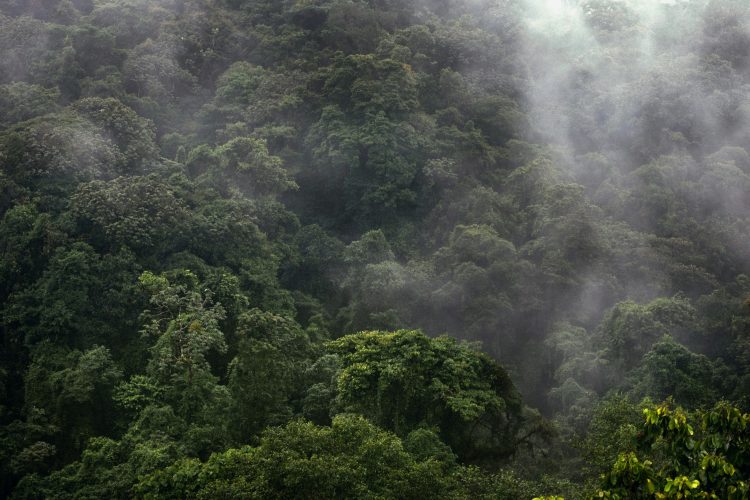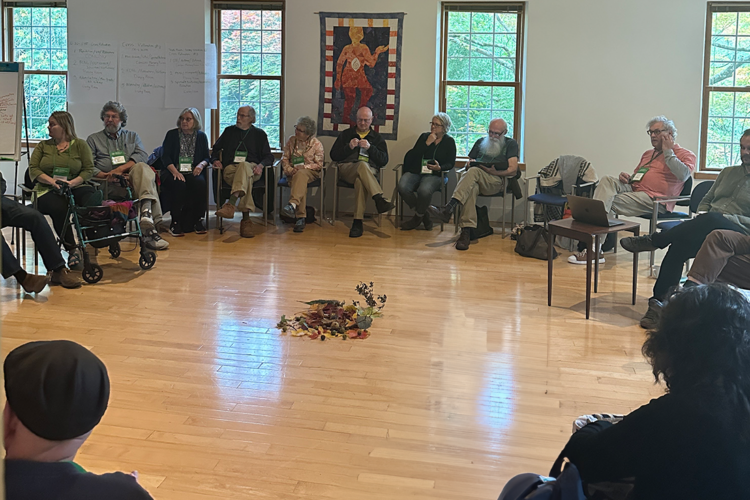Finding Our Inner Activists–with Humor and Heart
Finding Our Inner Activists–with Humor and Heart

Are you an armchair earthcare activist? Do you have a growing concern for the planet that you aren’t sure what to do with? If you feel a gentle stirring (or a more insistent inner nudge) in your life, take heart: Eileen Flanagan’s new book, Renewable: One Woman’s Search for Simplicity, Faithfulness, and Hope (She Writes Press, 2015) will encourage you and help you find ease with your own unfolding.
Flanagan is the clerk of the Earth Quaker Action Team (EQAT), a grassroots, nonviolent social action group taking on important issues like mountaintop removal or their latest campaign, BLAM! (Bank Like Appalachia Matters!), which was instrumental in getting PNC bank to step back from financing this devastating and dangerous form of surface coal mining.
Flanagan’s high-energy, engaging story begins with the moment she handcuffed herself to the White House fence in her first committed act of civil disobedience. Readers then are taken on a colorful retrospective journey that begins in Flanagan’s austere-but-able only-child upbringing, to her formative years in Botswana as a Peace Corp volunteer, and into middle life, where she finds herself with two kids and a husband, a larger house than she expected, and a lot of angst and inner pressure about the idea that her living is out of sync with her earlier values on consumption, sustainability, and community.
As she struggled to reconcile her image of herself as a middle-aged mom with a big house and two teenagers (including all the requisite devices and accoutrements) with who she’d been and how simply she’d lived in Botswana, Flanagan began to see how simplicity and sustainability could be goals in her life in U.S. culture as well:
“Even so, we did have choices. The size of our house was within our control, obviously, as well as the temperature we set our thermostat, though we had no individual control over the process that produced the gas that heated our home. Similarly, we chose what kind of food to eat and where to buy it, but our options were shaped by farm policies that favored big agribusiness, which used a lot of fuel to produce and transport food. Given this tension, I wondered, how guilty should I feel about my carbon footprint, which was much lower than the U.S. average, but much higher than the global average?”
She talked about this with her wise friend Deb, who offered some compelling clarity: “Being conscious just means that I am willing to make a deliberate choice.” (p 107-108)
Flanagan’s book weaves the rich storyline of her inner and outer life expertly. She invites readers into the messy times when she felt caught in tide pools of despair and regret, but she balances it with a light touch and more than a little humor and self-compassion. And as for her big moment of civil disobedience, getting arrested for handcuffing herself to the White House fence? Darryl Hannah was one of the celebrities also participating that day, and Flanagan shares that she shows up in the background of the photos the press inevitably captured of Hannah, munching on an energy bar. (It’s true; I googled it.) These types of funny, down-to-earth moments are sprinkled liberally throughout the book, enabling Flanagan to bring compassion and heart to season the struggle between idealistic call and realistic action.
Renewable is a wonderful, story-filled book, showing us ultimately that activists are not born–they unfold gradually, one choice at a time. That of course means there’s hope for all of us—in armchairs, on sidewalks, and every place in-between.

